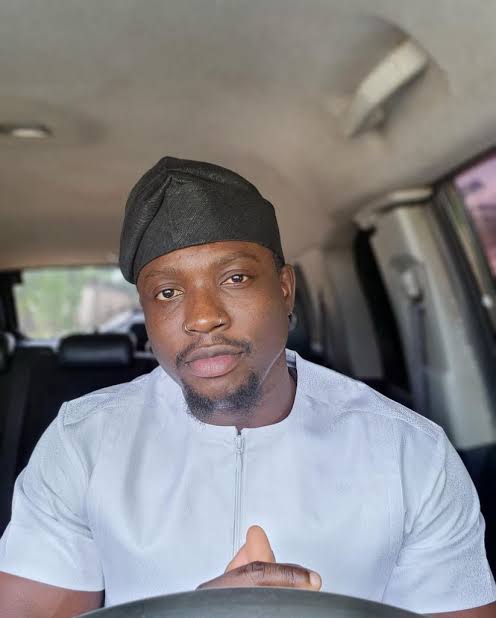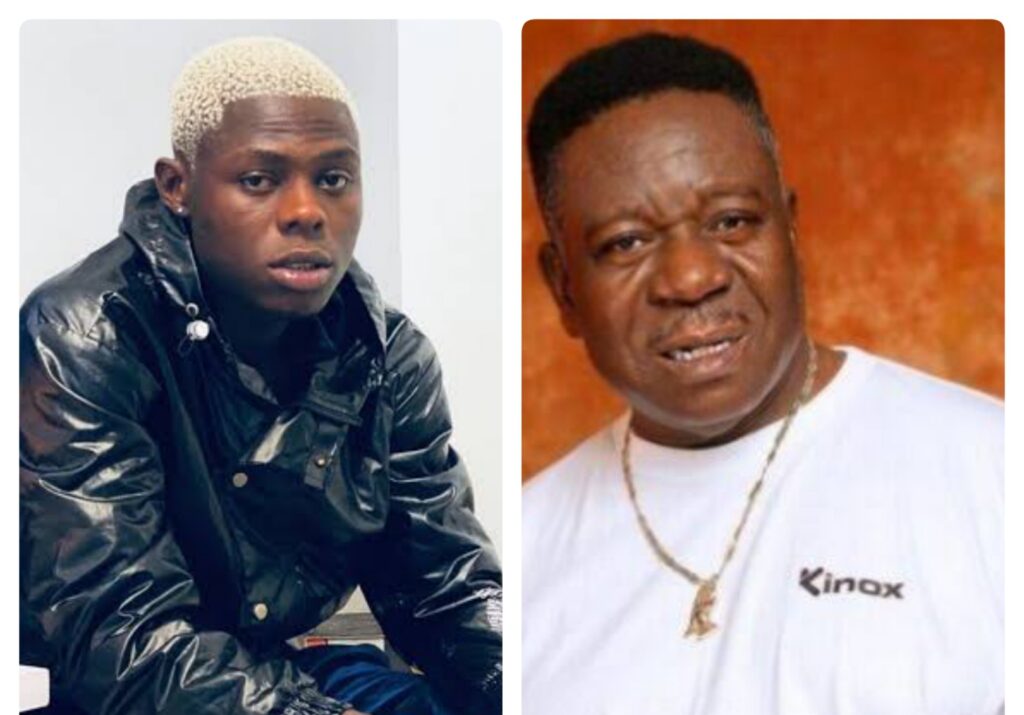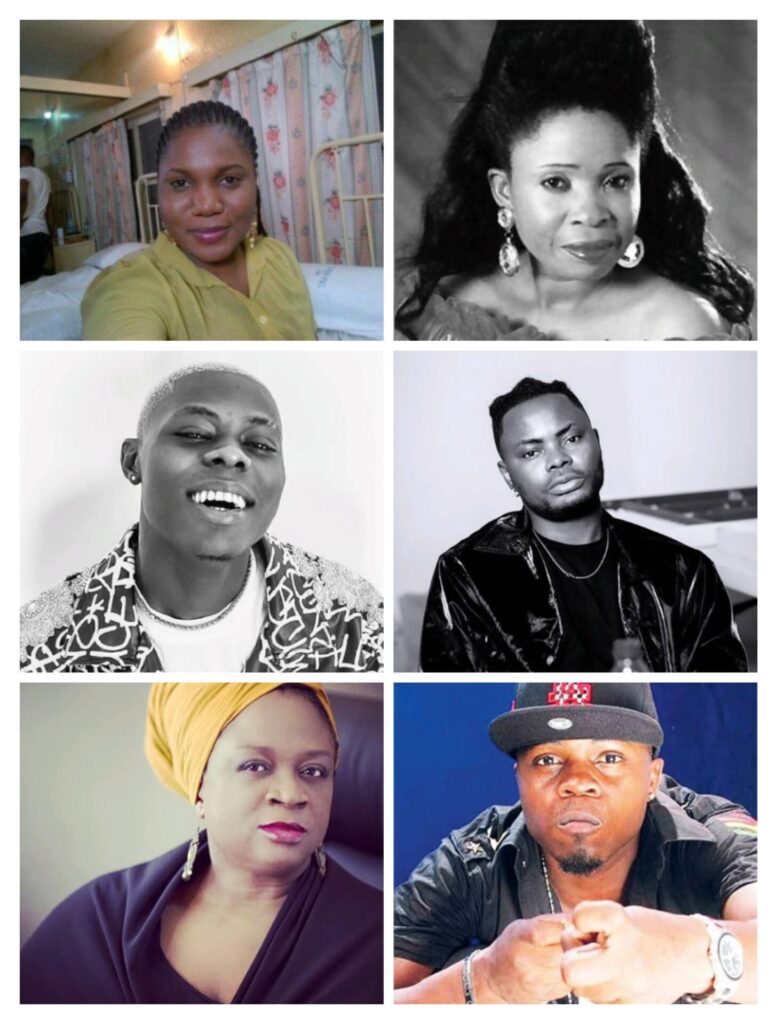EXCLUSIVE: What to learn from Mohbad’s fall-out with Naira Marley, death — Raphani, AMAMN PRO

Mohbad
27-year-old rising music star, Illerioluwa Oladimeji Aloba, known as ‘Mohbad,’ passed away under unclear circumstances on September 12, 2023.
Initial reports suggested the rapper, singer, and songwriter died due to an ear infection, but this claim was later disputed.
Many have called for the intervention of the police in the case including Bella Shmurda who earlier revealed that the late singer attempted suicide as a result of physical and mental torture.
The #JusticeforMohbad hashtag has since been trending on social media. The police recently announced commencement of investigation into the matter.
Amid the controversy surrounding the singer’s death, CrispNG held a space recently on X (formerly Twitter) to allow people share their thoughts on the matter.
The conversation featured several people including Weird MC, the award-winning Nigerian-British rapper, and Godwin Raphani Omadibi, the Public Relations Officer (PRO) for Association of Music Artists Managers of Nigeria (AMAMN).
Raphani shared useful insights on Mohbad’s death and what other rising artistes can learn from the development.
Excerpts:
CrispNG: More often than not we hear of artistes exiting labels with accusations of exploitation, neglect, etc. Can you say that the artistes lack an understanding of the contract signed or that they are being desperate to succeed?
Raphani: Most artistes sign contracts without engaging a lawyer. Why will you depend on the labels’ lawyer and get yourself into slavery? When getting a lawyer, get entertainment lawyers, not litigation lawyer.
CrispNG: In times where there are threats to artistes that want to leave the label, is the contract still a useful way out given how powerful these labels are?
Raphani: Contrary to popular opinion, contract is always the answer. I don’t have insight into Mohbad’s contract, but I believe that in every contract there is a clause, phrase in terms of dissolution of the contract, how the contract can be dissolved and what can lead to any contract being dissolved, there’s also a clause for resolution in terms of dispute.
If I or someone who is more experienced had been his manager, the first thing to be done is to go through the legal route. Most times managers are not trained, he should also have obtained a restraining order. It may take a while, but you’ll get the release. Not the street way, not through fighting, it doesn’t get anything done.
A standard contract should have notice of 7 or 14 days depending on how many years the contract is. Yes, system is corrupt, but we have bad and good eggs every where. So, if you have a genuine contract with ‘I’s dotted and ‘T’s crossed, however powerful an opposer is, you’ll always find someone who will stand on the part of truth and it will easier for such a person to take up your case when you have a contract that has all these elements in place.
It’s funny if you come to me as your manager telling me you want to end your contract and it doesn’t have a termination clause, that means it’s suppose to continue in perpetuity, so from the onset get a good entertainment lawyer. The contract is your saving grace, it’s easier to opt out when you have a well written contract.
CrispNG: What do you think of regulations in the industry and how would it have been beneficial in handling this case?
Raphani: Most artists needs to understand the importance of belonging to unions. In AMAMN, we have a disciplinary committee and a negotiation committee, we have Patoranking‘s manager, Efe Omorogbe; 2Baba’s manager and so many others.
Some of these senior colleagues form various committees. If Mohbad’s manager was part of us, it would have probably been something that we would have addressed. I do not know if Mohbad belongs to PMAN or any other association of artistes, but that would have been beneficial.
Most artistes need to understand the reason to belong to unions, both as individuals and also on the part of their managers.
CrispNG: With the case of Mohbad and speculations on drug use. How do we tackle drug use in the industry?
Raphani: Basically, there’s no way that a label is going to legislate an artiste’s drug use. The artiste is an adult and you can not tell him what is good or bad for him; it his choice to make.
It is the combination of how the artiste was brought up and the company he or she keeps. Usually, what we do as managers when we have an artiste who is deep into drug is to talk to them and try to show them what is good and what is not.
CrispNG: What are the structures (human resources) that need to be put in place for an artiste to thrive in the music industry?
Raphani: Right from the get go you need a good lawyer, specifically an entertainment lawyer. You don’t have to pay a lawyer most times, with humility you can get someone to believe in you even when you don’t have the resources and as time goes on when you start generating income you can start paying the person.
Secondly, your PR person, because he’s the one that will come up with strategies for you and help you to grow. It is usually in two ways, it’s either you go to the people and try and pursue them to your side or you put your self on a pedestal where they see you and see your value and then the people come.
Both routes work, but it’s easier to go through second route, especially now that we have social media, unlike the traditional way of going to radio and television stations to promote your songs and a well known person might try to block it, this obstacle might not necessarily be there because social media has broken that barrier.
Then you need your manager and a booking agent. Most people don’t understand that a booking agent is different from an artist manager, they can be one and the same but their functions are different.
As an artiste, the manager is not the first person you need to get on your team, because you need to have gotten to a certain level before engaging the services of a manager, unless you’ll be cutting yourself short. What is a manager need for if you have nothing to manage?
If an artist has this four people with the team being coordinated by the manager, he can rest assured that whatever angle obstacles are coming from, he is covered and this four people should not be the same as the labels; they should be his.
He should work out details, whether it’s by giving them percentage or by getting people that believe him in and will work with him until he’s able to get money coming in, and he starts paying them.
CrispNG: What lessons can we draw from Mohbad’s label feud?
Raphani: The relationship that exists between a label and the artists exists by the virtue of the law, the law of contract. Label-artists feuds also exist in other parts of the world. The lessons to draw from this is to read the contract yourself until you have exhausted all, then take it to a lawyer.
There are loopholes you may not be able to see yourself, probably because they have used some legal jargons to cover it up, but a good lawyer would easily identify it.
Also, the minute Mohbad left and started focusing on himself, he achieved a good milage. Social media has given us a level playing field. Right now, the dynamics have changed, in the 70s and 80s, labels used to go out and source for artists to develop. Right now, how they work is by looking at your social media.
Let’s say you have a combined strength of 20 million followers on social media, as rule of thumb only 5% of that number will be your core fan, that means if he puts out his song, one million people will buy it (say in the days of CDs), labels are trying to see what value you bring, why they should invest in you.
Look at how wide Mohbad’s growth went after the alleged harassment, when he became focused. So, as an artiste, you should focus on your self, stop running around looking for your saviour, focus on self development and building your network, because that’s how Mohbad got to where he got.
The third thing is Mohbad wanted more, he probably came from a disadvantaged position but he wanted more out of life, look at the kind of lady he married, it’s way beyond where he’s coming from.
Instead of him going to buy cars, he invested in landed property, which shows that he’s focused. A lot of artists these days once they get assurance from their labels begin to live lavishly.
Do not forget that you’ll only pop for a while, after you stop popping how are you going to get the money? You’ll only get your money when you make yourself relevant, then you get money from streamings. 2Baba for example has made wise choices that he doesn’t have to depend on his royalties and that’s what we need to do. That was the path Mohbad was treading before his life was cut short.




